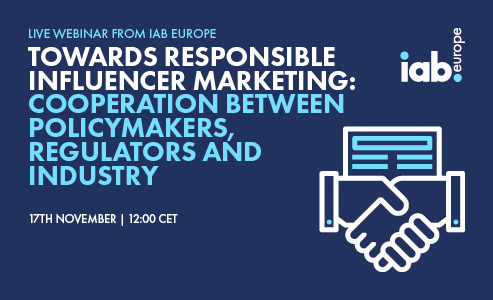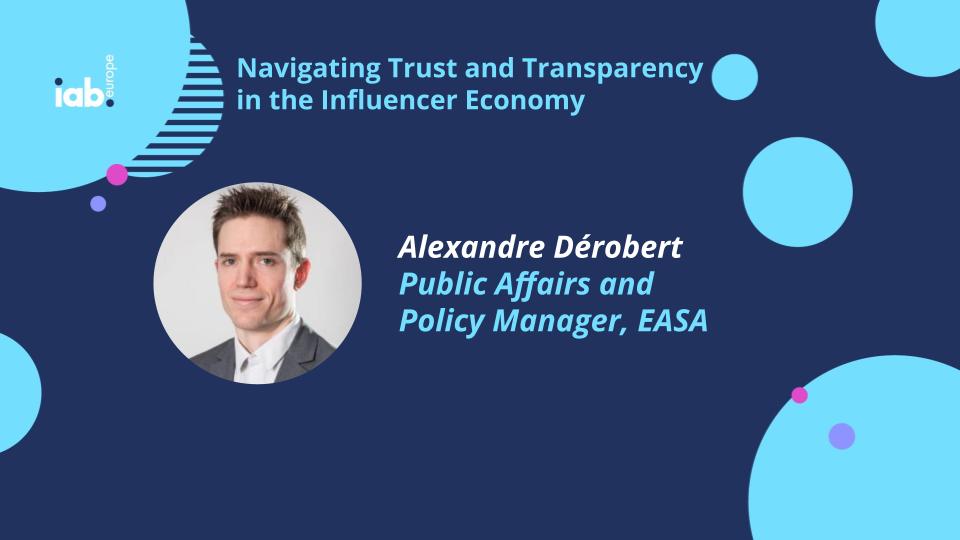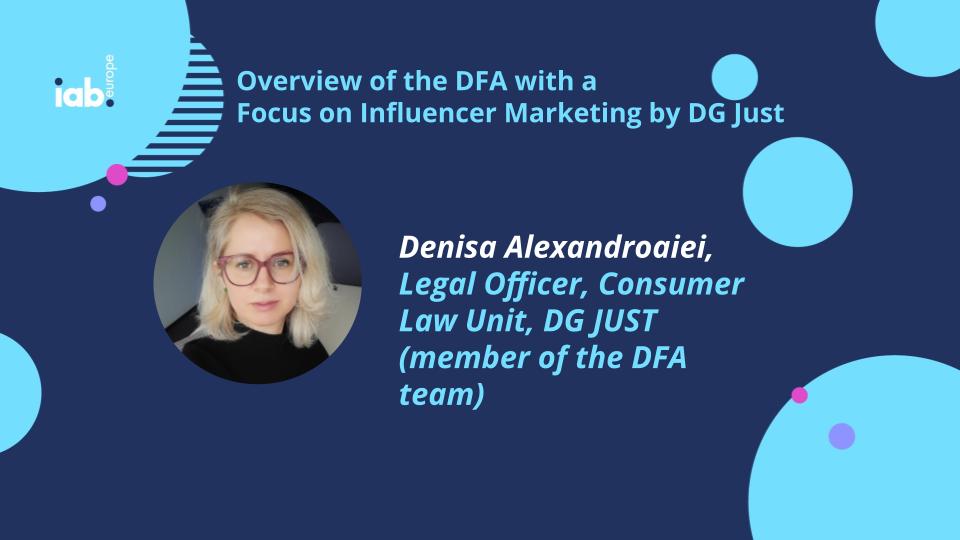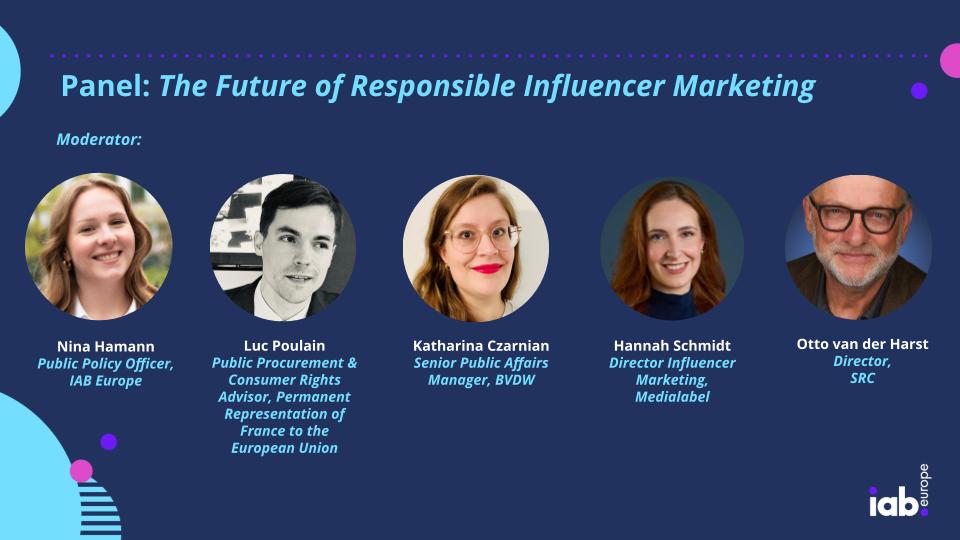
On 17th November, we hosted a significant webinar addressing the key themes of responsible influencer marketing, marking a critical exploration of transparency, authenticity, and consumer protection in the rapidly evolving influencer landscape. Moderated by our Public Policy & Communications Officer, Nina Hamann, the session delved into the necessity of collaboration between policymakers, regulators, and industry players to shape responsible practices.
Watch the full event recording here.

The webinar opened with insights from Alexandre Dérobert, Public Affairs and Policy Manager, EASA. He highlighted the staggering growth of influencer marketing, projecting its market size to reach €32.6 billion by 2025. This rapid rise is accompanied by increasing scrutiny from regulators due to concerns over transparency. He noted that 22% of online ad complaints relate to influencer marketing, with 77% of these citing inadequate disclosure. The presentation underscored the importance of existing legislation, such as the Unfair Commercial Practices Directive (UCPD) and the Audiovisual Media Services Directive (AVMSD), which dictate how influencers must conduct their communications. EASA’s self-regulatory network is developing efficient solutions to the benefit of all stakeholders, in particular the adEthics programme which was presented during the session.

Denisa Alexandroaiei, Legal Officer, Consumer Law Unit, DG JUST (member of the DFA team), followed with an overview of the European Commission's intentions behind the forthcoming Digital Fairness Act (DFA). This act aims to address shortcomings identified in influencer marketing practices, emphasising the need for salient disclosures of commercial content, regulation of harmful goods promotion to minors, and broader accountability among brands and advertising agencies in influencer marketing. The goal is to increase compliance and establish fairness in digital practices.

Transitioning into a panel discussion, experts from various sectors explored their perspectives on the future of influencer marketing. The overarching emphasis was on transparency, accountability, and professionalism. They also highlighted the challenges faced by agencies in maintaining communication across the influencer value chain, ensuring adherence to advertising standards, and acting swiftly to address any compliance issues. Similarly, other panellists echoed the sentiment that fostering an environment of education and awareness is crucial for the maturation of influencers and the industry as a whole.
The discussion highlighted the effectiveness of influencer-led training programs, particularly in the Netherlands, where established influencers provide e-learning sessions for their peers. This peer-driven approach fosters a supportive learning environment, ensuring that new and emerging influencers understand the standards and legal obligations they must adhere to.
Participants also explored the regulatory landscape, with a focus on Germany’s multifaceted approach to influencer marketing regulation. Despite the absence of specific influencer legislation, existing laws, such as the unfair competition act and various advertising guidelines, help maintain compliance. Panellists noted that while education is vital, reaching smaller creators - often dubbed "nano" and "micro" influencers remains a challenge. Finding effective ways to educate this segment can significantly enhance compliance rates.
France’s recent legislative efforts were another crucial point, as new laws were enacted to define influencer roles and prohibit certain promotional practices to protect consumers, especially minors. The French framework emphasises the need for transparency in influencer marketing, citing that significant anomalies in advertising practices often exist despite regulatory measures. A comprehensive guide of good practices was introduced to assist content creators in navigating these laws effectively.
Moderated by Nina Hamann, Public Policy & Communications Officer, IAB Europe, speakers included:
As discussions wrapped up, the consensus was clear: the path to responsible influencer marketing hinges on collaboration, education, and robust regulatory frameworks. The webinar served as a timely reminder of the industry's responsibility to adapt to regulatory expectations and ensure ethical practices that build consumer trust.
